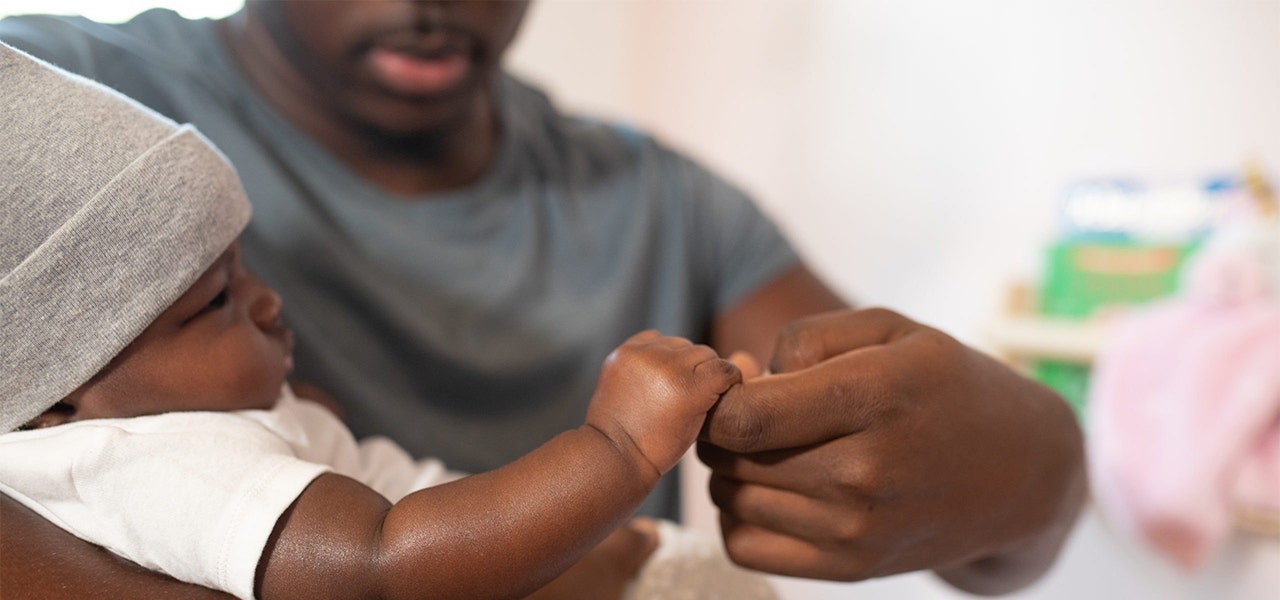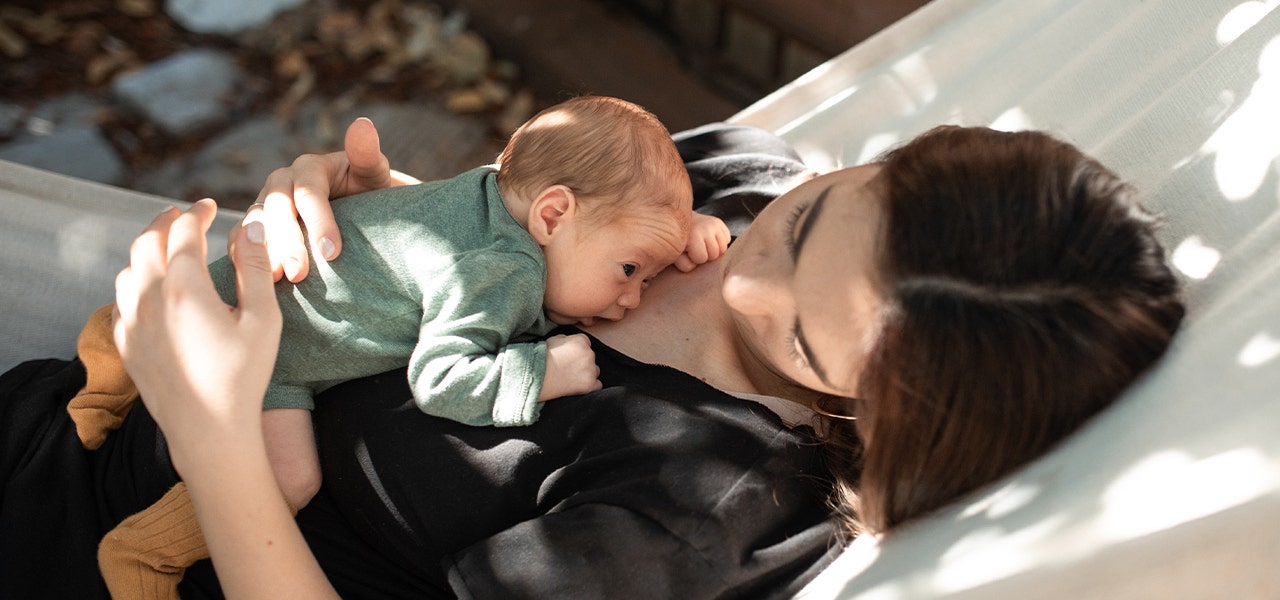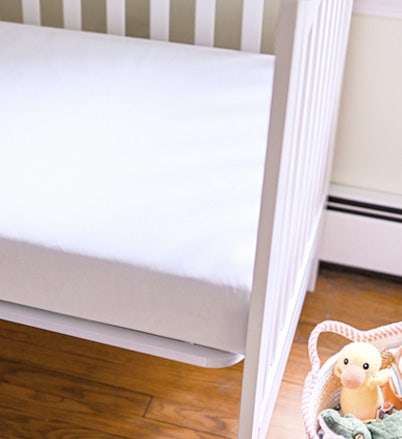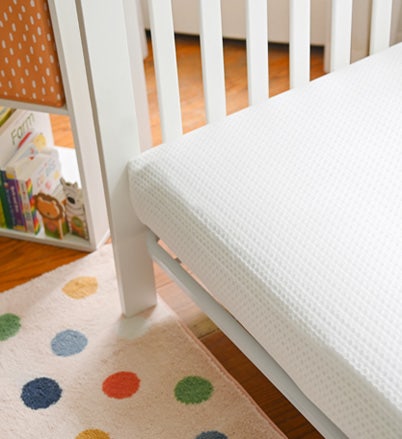Do you ever feel like your baby is tired but fighting sleep? Why would they do that? As a sleep-deprived parent begging to get some shut-eye for yourself, you may think fighting sleep seems absurd.
Yet, I'm sure you've been there. You're going through your bedtime routine with your little one. You know your baby is tired, but the minute it comes time to sleep … they fight it!
As strange as that may seem to us as adults, your baby may have a very good reason for resisting rest even when they clearly need it. Here's a quick guide to why babies fight sleep and what you can do about it.
What Does “Fighting Sleep” Mean?


Fighting sleep is just what it sounds like. This term refers to when your baby puts up a good fight against falling asleep despite being tired or on schedule for their normal bed time. They may arch their back, cry, fuss, squirm, kick or generally protest about going to bed – that's fighting sleep! Your little one clearly needs to rest but just does not want to give in. Sound familiar? Read on…
4 Common Reasons Why Babies Fight Sleep
There can be many reasons why your baby fights sleep today, but in general, the following four causes are usually to blame:
- Overtiredness
- Undertiredness
- Overstimulation
- Separation anxiety
1. Overtired
An overtired baby may feel like a disaster waiting to happen! However, this situation can come about easily – and you often won't know until it's too late. If you miss the magical sleep window or fail to read the sleep cues, Baby can quite quickly become overtired, resulting in being unable to fall asleep due to sheer exhaustion.
It can be hard to understand as adults because when we're tired, we know that all we need to do is go to bed and close our eyes! But think back to those nights when you go to bed exhausted and then spend a good couple of hours tossing and turning. Chances are, you were overtired too. So for babies and some adults, being overtired means falling asleep is harder.
2. Undertired
A baby who is not yet ready to sleep will also protest. It's important to read your baby's sleep cues and listen to what they're telling you. If they seem wide awake and happy despite it being the usual time for a nap, then chances are they're not quite ready to sleep just yet. Try keeping them up for 15 or 20 minutes longer, and then try again. Make sure this extra awake time isn't overly exciting. We don't want to add any overstimulation to the mix!
3. Overstimulation
Speaking of overstimulation: when your child's brain is overstimulated, they may fight to fall asleep and only sleep for a short period. You may notice this happens after your child has been very busy playing and seems to be very excited. Some children are more likely to get overstimulated than others.
4. Separation Anxiety
This usually occurs around at eight or nine months of age – Baby starts to realize that they want to be close to you AT ALL TIMES and sleep is just not a priority. This can be really hard work and often resurfaces again around 18 months of age, too. Hang in there, and know that, while it’s hard, it’s also a normal part of your child’s development.


What to Do when Baby Is Fighting Sleep
So, what can you do? Perhaps you know that baby is overtired. Or, maybe none of the above fit. Remember that your baby's temperament can have a lot to do with how they sleep, too, and they might fight sleep simply because of their personality traits. But even with this in mind, there are steps that you can take to help the situation. For example:
Move Bedtime
If Baby is overtired at bedtime, start your routine a little earlier. Half an hour is a reasonable time to spend, so if your routine tends to run past this, try to reign it in a bit. If Baby is undertired, make bedtime a little later instead.
Tweak your Nap Routine
We all know that sleep breeds sleep, and if your baby sleeps well during the day, they're likely to sleep well at night time too. So if your baby hasn't had great naps, consider this for bedtime. If naps are consistently hard work, consider how this affects the bedtime routine too.
You need a good nap routine so that your little one is not overtired during the last part of the day! But that can change as Baby grows. For an undertired baby, look at trimming naps down a little or even making moves towards ditching one of them if they have two per day.


Introduce a Walking Wind-down
To avoid overstimulation, try to unwind your child before they fall asleep. A 15-minute nap routine or a 30–45 minute night routine should help your child to unwind. If that doesn't quite seem like enough before a nap, add a walking wind-down to the beginning of your nap routine.
For 5–10 minutes before the nap routine begins, pick your child up and slowly walk around with them, looking out of the windows and at pictures on the walls. End your wind-down, where you will begin your nap routine. This extra time unwinding your child's brain will make it much easier for them to fall asleep.
Tweak your Entire Routine
If your baby is always overtired at the end of the day, your whole routine may need an overhaul. How much awake time do they have between naps? They may need to be awake for shorter periods to avoid burnout before bedtime. For undertired babies, longer periods of awake time might be the answer.
Finally, never underestimate the power of just being there for your baby. If your baby suffers from separation anxiety, they'll gain comfort in knowing you are there. Go to them when they cry, and remain firm in your sleep training techniques. Remember that separation anxiety doesn't last forever, and developing a healthy sleep routine is an ongoing process.





